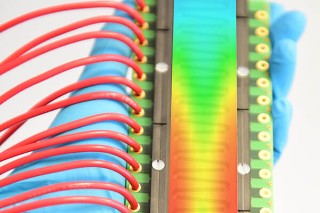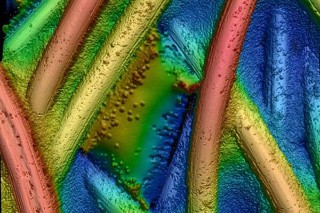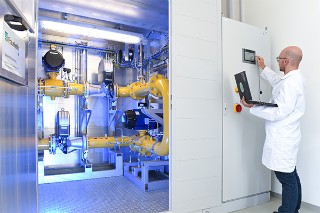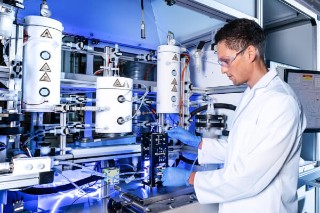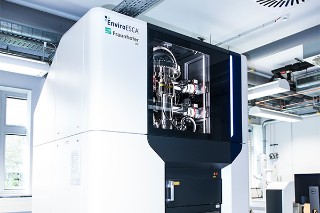
The innovative High-Temperature Near-Ambient Pressure X-Ray Photoelectron Spectroscopy (HT-NAP-XPS) brings conventional XPS to a new dimension of surface science. At Fraunhofer ISE we investigate functionalized surfaces at pressures up to 25 mbar and temperatures up to 1 000 °C allowing in situ studies of reaction mechanisms and their intermediate stages – especially attractive for materials used in hydrogen technologies.
download [ PDF 2.07 MB ]

